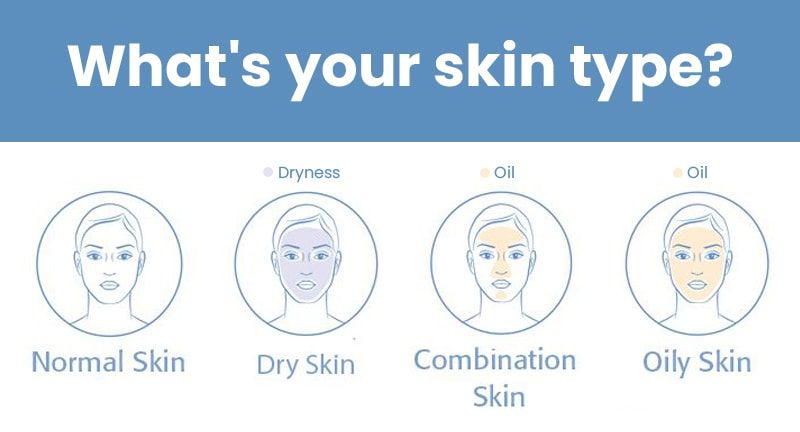How Do I Determine My Skin Type?
35 months ago
2 minute read.

Skin is the largest organ in the human body. It is also the first line of defense against external harsh substances. Your skin is made up of protective layers of cells supported by nerves, glands, and blood vessels. These layers move up on the line and then shed off on the surface.
Beautiful and healthy skin makes you look more attractive, that's why it is important to take good care of it.
Determining your skin type is an important first step in knowing how to treat your skin and what products to use.
Here are the steps:
- Clean away any dirt or oil that may have accumulated during the day.
- Wash your face with a skin cleanser and pat dry.
- Wait for an hour to allow your skin to return to its natural state.
- Now, press a separate piece of tissue on your chin, center of the forehead, outer forehead, and center of cheeks, outer cheeks, and nose.
Related: Right way to scrub the dead skin away
Examine the tissues:

- If you see oil on each tissue (seen as transparent spots on the tissue), it indicated an oily skin type.
- If you see oil on only some tissues, especially on the T-zone (forehead, node, and chin), it indicates a combination skin type.
- After wiping, if the skin is left too tight or stretched with a feeling of dryness or you notice flaky skin residues all over the tissue, then it indicates a dry skin type.
- No oil and no flaky residue on the tissues along with skin feeling supple and elastic indicates a normal skin type.
Once you have identified your skin type, you can take the necessary steps to get the most healthful glow out of your skin, whatever type it turns out to be.
Also Check: How To Boost Your Skin Health With Zinc-Rich Foods
Skincare: 5 tips for healthy skin
- Protect yourself from the sun- One of the most important ways to take care of your skin is to protect it from the sun. A lifetime of sun exposure can cause wrinkles, age spots, and other skin problems — as well as increase the risk of skin cancer.
- Quit smoking- Smoking makes your skin look older and contributes to wrinkles. Smoking narrows the tiny blood vessels in the outermost layers of skin, which decreases blood flow. This depletes the skin of oxygen and nutrients that are important to skin health.
- Treat your skin gently- Limit bath time, avoid strong soaps, shave carefully, pat dry skin instead of rubbing, and do not forget to moisturize dry skin.
- Manage stress-Uncontrolled stress can make your skin more sensitive and trigger acne breakouts and other skin problems.
- Eat a healthy diet- A healthy diet can help you look and feel your best. Eat plenty of fruits, vegetables, whole grains and lean proteins.

Expert advice: Remember, irrespective of your skin type, washing your face with a face wash, twice a day, and before going to bed is very important.
Leave a Comment
Related Articles
Health Checks @ Home
Service
Explore
© 2025 Truworth Health Technologies Pvt. Ltd.




